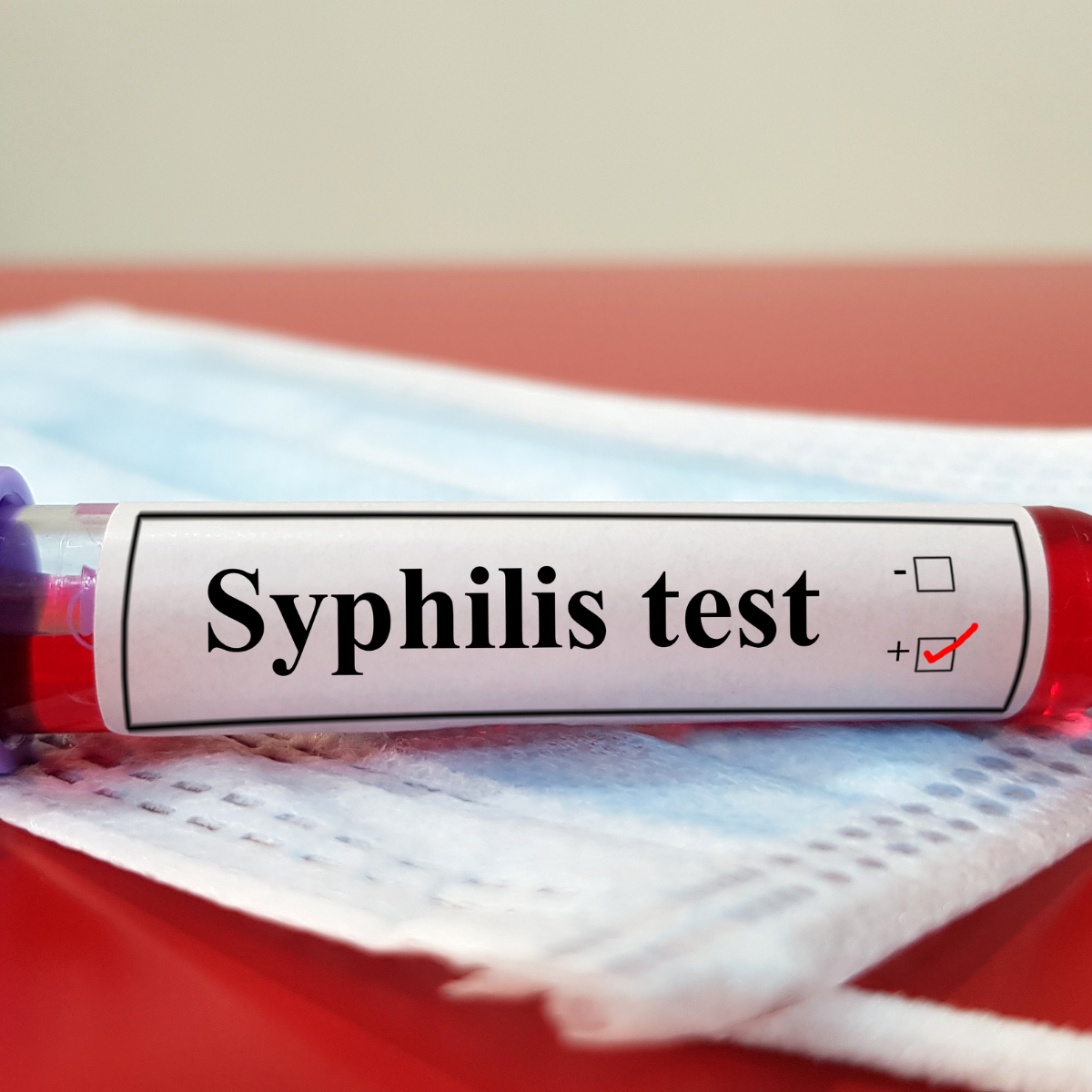Causes and risk factors
Syphilis can be transmitted through direct contact with an infected lesion during oral, vaginal or anal sex. It can also be transmitted from a pregnant woman with syphilis to her fetus.
You have a higher chance of contracting syphilis if you have multiple sexual partners, do not use barrier protection while having sex or have compromised immunity as a result of HIV infection.
Clinical presentation
Syphilis manifests in 4 stages: primary, secondary, tertiary and latent.
Primary syphilis is the first stage of the disease. There develops a small, painless chancre (open sore) at the site of infection. The site of the primary lesion may be the penis, uvula, labia, cervix, lips, mouth, fingers or buttocks. The chancre is painless, discharges clear serum and it looks round or oval, with bright red, indurated margins. The regional lymph nodes are enlarged, firm and painless. The primary lesion heals in 2-6 weeks.
Secondary syphilis: If primary syphilis remains untreated, the virus spreads through the bloodstream to several other organs in the body. This stage is known as secondary syphilis. Appearance of a rash, commonly on palms or soles about 6 to 12 weeks after the chancre has healed. However, the rash may appear on any part of the body. The rash usually heals without treatment within 2 to 6 weeks. Several painless lesions may develop in the mouth, bones and other internal organs. Other non-specific symptoms include fever, malaise, headache, sore throat, fatigue, joint pain and patches of hair loss.
Latent syphilis: If secondary syphilis remains untreated, the bacterium can sometimes remain dormant for several years. This phase is known as latent syphilis wherein the infected person will develop no signs or symptoms of syphilis.
Tertiary syphilis: Untreated syphilis can damage several of your body organs including the brain, bones, eyes, blood vessels etc. This is known as the tertiary phase of syphilis.
Sometimes, more than 1 sexually transmitted disease can co-exist in a person. For all persons suspected with syphilis, one must also consider the possibility of HIV, herpes zoster, genital warts and candidiasis.
Diagnosis & Investigations
After a thorough history taking and physical examination, blood tests are advised. These include VDRL test, Fluorescent treponemal antibody absorption (FTA) test and Rapid plasma reagin (RPR) test to detect the antigens or antibodies of Treponema pallidum. Cerebrospinal fluid (CSF) examination may be necessary in some cases.
Treatment
The earlier the treatment for syphilis is begun, better is the prognosis. Antibiotics are given intramuscularly.
Primary syphilis is completely curable if proper treatment is taken. Once the disease progresses, it becomes more and more difficult to treat.
Syphilis can be prevented by taking a few simple measures:
- Wear a condom during sex without fail.
- Stick to one trustworthy sexual partner.
- Get prompt treatment for primary syphilis.






























